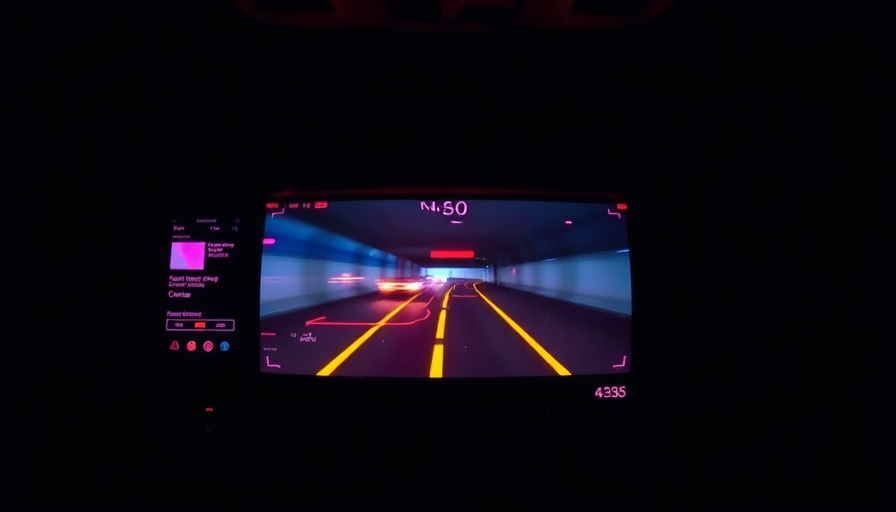
Ford's Extensive Recall: Navigating Safety and Technology Concerns
In a significant move that affects over one million vehicles, Ford has announced a recall due to problems with its rearview camera systems. This recall encompasses a wide range of popular models from the Ford and Lincoln lineups, including the iconic F-Series trucks and the Ford Mustang, spanning model years from 2021 to 2025. This action highlights ongoing challenges automakers face with the integration of technology in vehicles, particularly the dependence on software systems that can occasionally falter.
What’s the Issue?
The primary concern outlined by the National Highway Traffic Safety Administration (NHTSA) relates to a software error in the Ford Sync infotainment system. This glitch can result in the center infotainment screen freezing or even displaying a black screen when the driver attempts to use the rearview camera while reversing. Such a malfunction poses serious safety risks, as it removes a critical visual aid during one of the most controlled and vulnerable times in driving.
Ford has confirmed awareness of a minor crash linked to this issue, which resulted in property damage. Fortunately, the automaker has reported no injuries associated with the camera failure, a silver lining amid the recurrence of technological mishaps in modern cars.
Impacted Models
The recall includes an extensive list of vehicles, such as the 2021-2024 Bronco, 2021-2023 Mach-E, and the 2024 Mustang and Ranger. Owners of vehicles like the F-250 and F-350 should pay particular attention, as these trucks form a substantial part of Ford’s customer base.
The Solution: What Ford Is Doing
To rectify the issue, Ford plans to perform software updates on the accessory protocol interface module (APIM) once a solution is finalized. For many customers, this process may be as simple as an over-the-air update, sparing them from a trip to the dealership. Owners will receive initial notification letters starting June 16, with promises of more information to follow regarding the remedy.
The Broader Context of Vehicle Recalls
This recall is not an isolated instance. The automotive industry has experienced a surge in recalls over the last decade, driven primarily by the increasing complexity of vehicle technology. As manufacturers build cars that are more interconnected and reliant on software, the margin for error diminishes dramatically. For instance, major recalls affecting millions of vehicles across various brands have raised concerns about safety and consumer trust.
What This Means for Consumers
For consumers, staying informed about recalls and safety issues is crucial. Vehicles today are not just machines; they are increasingly sophisticated electronics on wheels. Awareness and readiness to respond to recalls can protect against unfortunate incidents and ensure safety on the roads. For Ford owners, this is a reminder to regularly check for recall notifications and software updates, as vehicle safety evolves parallel to technological advancement.
Looking Ahead: The Future of Automotive Technology
As automakers strive toward integrating new technologies, it’s vital to anticipate the challenges that come with them. Increased reliance on software has the potential to greatly enhance driving experiences, enabling features like autonomous driving and smarter navigation systems. However, it also brings about a responsibility to ensure these systems are robust and fail-safe.
In the meantime, Ford’s proactive approach to addressing the recall reflects an important step in the right direction, fostering a culture of transparency and responsibility. With the rise in electric vehicles and self-driving technology, staying informed and engaged as consumers will be essential.
As the automotive landscape continues to evolve, Ford's recall serves as a pivotal lesson for both manufacturers and consumers. Staying alert to potential issues and understanding how to navigate them is the key to safer, smarter driving.
 Add Row
Add Row  Add
Add 




 Add Row
Add Row  Add
Add 

Write A Comment